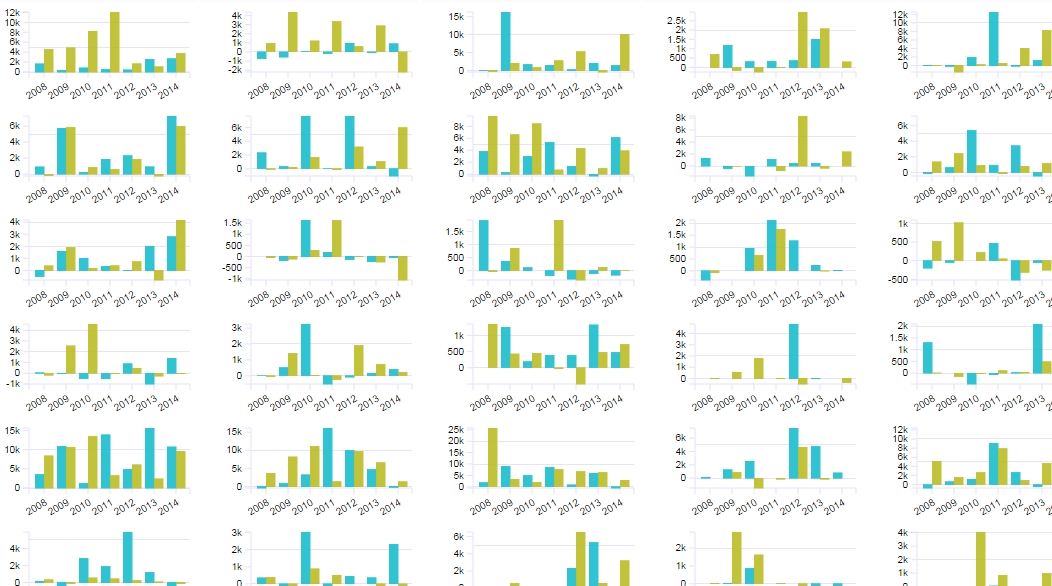
Assessing mental and behavioral health is a crucial stage in hospitals and medical centers. Doctors and psychiatrists cannot merely rely on general observations. Worse, they cannot second-guess a patient’s behavior. This is not the Victorian times. Countless of studies and medical reports have already been published to help medical practitioners come up with a list of key performance indicators (KPI) to better cater to their patients and provide unparalleled care for them.
Key Performance Indicators
Just what exactly is the importance of KPI reporting for behavioral health? Most hospitals and medical centers now use metrics and KPI, data and indicators, respectively to monitor their performance as a health institution. Moreover, KPIs help an institution meet its strategic goals.
The importance of KPI reporting for behavioral health is not new to medical institutions and to the public. Complex factors have given birth to KPIs. These factors are: 1) the increasing demand of citizens for better hospitals and medical facilities; 2) the shift from manual labor and encoding of patient’s data to an automated and performance-based assessment; 3) the continuous evaluation of the Department of Health and other similar government agencies; 4) accreditation of hospitals; and 5) the clamor for the wise use of public funds.
Why KPI Reporting is the Norm
The importance of KPI reporting for behavioral health is undisputed. These indicators provide the drive for health institutions to do better and to submit timely reports of progress. These set performance standards ensure that the health institution is at par with other high-performing hospitals and medical centers.
Without the KPIs, institutions will be complacent, which could jeopardize not only the health of patients but also their lives. In psychology alone, much is needed to be said about how mental institutions should care for patients. KPI reporting also underscores the achievements of each health institution.
With KPIs, it is easy for health institutions to create and revise these plans. Such strategies can be improved or developed to suit what is dictated by government sectors. The plans not only cover programs but budget proposals as well.
How KPI Reporting Works
KPI reporting for behavioral health is not as complicated as you think. It basically works the way KPI reporting is done in other institutions. It is important that problems and needs are first identified before any plans can be developed. These problems and needs in the health sector are further divided into different aspects, such as patient care, recording of patient’s information, demographics, and evaluation and procurement of health facilities.
Once these problems have been identified, policies may then be drafted or assessed, as to which policy suits a need. If there is no existing policy for a problem, the stakeholders may brainstorm on possible interventions. They can set goals for a better medical practice and service.
An example of how this logical model works in health care is when physicians, psychologists, and other medical practitioners provide inputs for evaluation (i.e. data based on key performance indicators), and activities are suggested out of these inputs.
The outputs may vary; hospitals may think of programs for patients, additional services, or the establishment of more clinics in a certain location. The outcomes would then be assumed – the bigger picture and supposedly the end goal for the health institutions.
The Characteristics of KPIs
For KPIs to be useful tools, the key performance indicators should be SMART: specific, measurable, achievable, relevant, and time-bound. Hospitals should know exactly what they are measuring and how this measurement is going to happen. There must be an objective way to glean data from patients, especially if it’s behavioral health.
In addition, the indicator should also be relevant and achievable within a timeframe. The relevance may be checked vis-à-vis the problems and needs addressed. Otherwise, the indicator may not be useful for the institutions. The KPIs must have a deadline as this would help institutions project trends. The timeframe will help medical practitioners become more systematic and efficient in health care services.
The Future of KPI in Behavioral Health
KPIs are sure to increase the efficiency of health institutions; there has been no indication that the health sector will do away with it. As long as there needs to be improved in hospital services and patient care, KPIs will never be seen as useless.

